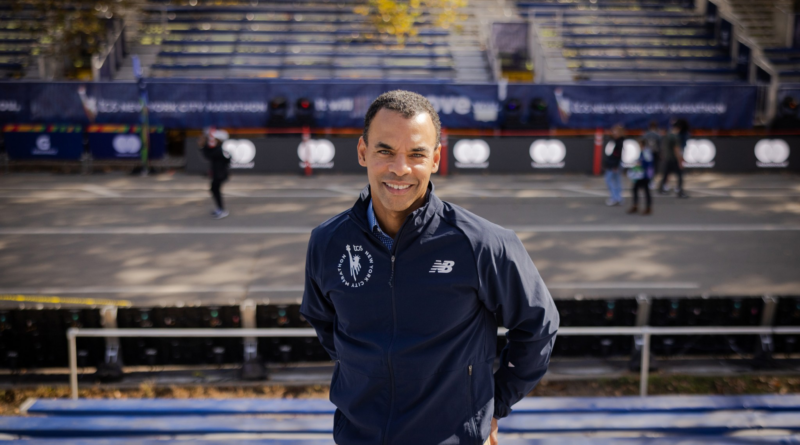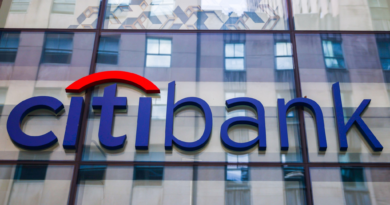New York Road Runners CEO’s mental health push aims to lure new athletes—and could help with inclusiveness
New York Road Runners (NYRR) is expecting 26,000 athletes to take part in this weekend’s Brooklyn Half Marathon, confirming its status as the biggest marathon race in the U.S. and reflecting a hard-fought return to pre-COVID participation rates.
This year, the nonprofit athletic organization, which puts on 50 races a year, including the New York City Marathon, is deepening its focus on running’s mental health benefits to lure more participants. Although NYRR itself is back on healthier footing, the sport isn’t: participation numbers at races in 2022 were 84% of 2019’s and are projected to remain soft in 2023, according to Road Runners Club of America.
NYRR’s new CEO, Rob Simmelkjaer, a former broadcaster and media company executive at places like NBC and ESPN, thinks that reinforcing an idea that people intuitively understand—exercise is good for the mind, spirit, and body—will help the organization’s growth.
Simmelkjaer, a two-time marathoner, says the mental health stigma has weakened after COVID-19, and people are more receptive to the message. “It gets them off their couch and running.”
While some critics have accused the organization of being too corporate and focusing on the affluent, Simmelkjaer says a prosperous NYRR is one that can better carry out its mission of getting more people into exercise, especially inner-city kids.
This interviewed has been condensed and edited for clarity.
Fortune: What is the connection between running and mental health?
I compare running to rinsing a wet sponge. As your day goes on, you’re getting heavier and heavier from your stresses, work stuff, personal stuff, and whatever is happening in your life. So I think about running as squeezing the sponge to get all that heaviness out and feel like a lighter, better person. If I can do something positive early in the day, it gives me the momentum to do everything else.
It’s long been known that exercise clears the mind and helps blow off steam. So what’s new here?
What is new is that we can talk about it more now. One of the things that has changed in our society since the pandemic is how much more acceptable it is to talk about mental health challenges. I’m not sure how acceptable a conversation it was in the past. So we are saying, ‘It’s a reason to run.’ People relate to that, and it gets them off their couches and running.
What tells you runners want to hear this messaging from NYRR?
The numbers tell us. So many people started running during the pandemic and have continued. When I ask folks, ‘Why are you running?’ or send out our survey after the TCS New York City Marathon, the results always show that the top reason they run is to relieve stress, which essentially is mental health.
Concretely, what does that mean for NYRR’s programs and messaging?
May is Mental Health Awareness Month, and we are kicking it off with a program at our run center with Molly Seidel, a well-known long-distance runner who has been pretty vocal about her mental health journey. We will have morning meditations online that will prepare people to go out and run with positive thoughts. A big part of NYRR is about giving people a reason to run.
Another part of your mission is providing training and exercise programs to disadvantaged youth in the city. How does the mental health messaging fit in there?
Just as we are trying to give adults a reason to run, we are trying to give kids the same reasons to take up the sport, stay in the sport, and give their parents a reason to take them to their first race. We can connect mental health and breaking cycles of depression and anxiety that so many kids are dealing with now to running, especially after the pandemic. A lot of the messaging is aimed at parents, so they realize this can help their kids be happier and more resilient.
Does this mental health initiative mean we will see psychologists at your races with desks and ‘The doctor is in’ signs like Lucy in the ‘Peanuts’ comic strip?
I don’t think so. (Laughs.) We are definitely exploring partnerships. I’ve heard from people in the mental health community, and I’ve even been told by a couple of therapists that they’ve advised clients to take up running. We’re not going to have someone like Lucy at the finish line, but we will certainly explore partnerships that could help us engage with the community.
Your earlier career included long stints at ESPN and NBC Sports in business capacities and as a broadcast journalist and lawyer. Why NYRR and the nonprofit world now?
In my career, I was always trying to find the balance between the satisfaction of the business side, like driving innovation, profit, and shareholder value, and finding ways to serve. New York Road Runners is the perfect combination of those two things. We are a big sports organization with significant revenue, so we’re a business. But the impact on the community is also our bottom line. This feels a lot better than having to go to shareholders; no offense to shareholders. I love shareholders. I’m a shareholder myself.
So what do you say to people who have long criticized NYRR for becoming too corporate, too big with races that are too expensive, and too focused on affluent Manhattanites?
We are a ‘business’ in that we are about generating revenue for our mission and that it’s profitable. We could probably do a better job of making sure people know what we are doing in schools and what we are doing with a program like Run for the Future. But those “corporate” activities people see are what drive the mission, and I hope people keep that in mind.
In November, you replaced an interim CEO who had to steady NYRR after the pandemic hit revenue. There’d also been discontent in the rank-and-file about opportunities for employees of color, which led to the 2020 departure of some executives. How do you feel NYRR is doing today?
That period had two shocks with the pandemic, which caused huge economic disruption and those organizational problems. My predecessor Kerin Hempel did a tremendous job navigating NYRR through that difficult period. I’m lucky to come in on the heels of really hard work and hard decisions made by her. I hear from staff that we are turning the page from that era. Now, we are going on offense again. We are starting a long-term strategic planning process to think about Road Runners in five years and our big, hairy audacious goals for the organization. (In October 2024, the New York Times reported that an internal investigation had cleared Hempel’s predecessor, Michael Capiraso of accusations of fostering a toxic environment.)
We are sitting at Tavern on the Green, near the New York City Marathon finish line, which you’ve called one of the happiest places on Earth. What makes it so?
The finish line is one of my favorite places to be because people have put in the work. They’ve fought through the difficulty of running a marathon. When you see them get to that finish line, you see those emotions, you see the happiness.
But it’s not always a happy place, I can attest. Don’t you ever cross a finish line and think, ‘I suck?’
That never happens. I always feel that whatever I had that day is what I had. But tennis is the opposite. I’d say nine times out of 10, I hate myself when I walk off the court.




